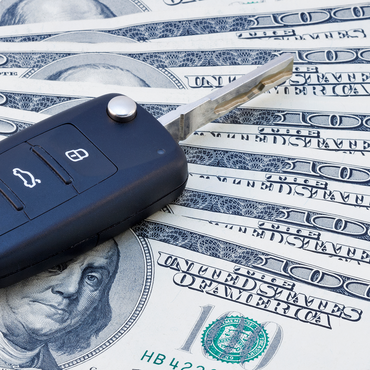Are there U.S. consumers who want to repay their car loans with cash?
Sep 09, 2021Paying for a vehicle can be done in more than one way. So why do Americans decide to take auto loans, and how do they want to pay them back?

In 2019 there were 276 million registered vehicles in the USA, a country with a population of almost 330 million people. The percentage of Americans that own private vehicles, particularly outside of the nucleus of major cities, is extremely high due to high dependency on cars for commuting to work and maintaining a certain lifestyle, and it is common for households to own multiple vehicles for different family members.
To make the purchase less painful for the household budget, 44% Americans take a loan when making decision about how to finance a vehicle.
Even though salaries in the U.S. have been growing, car prices have increased at the same pace, putting pressure on financing vehicles in the process. Some middle-income families have started to struggle with regular car repayments. In low-income families the situation looks even worse. And not having a car in countries like the U.S. is often simply not viable due to limitations of public transport, long distances, and accessibility.
Taking a loan – not always easy
So it is understandable that taking out loans to buy a car is a common solution. But even if low-income Americans decide to finance a car purchase with the help of a loan, they can often struggle to pay it back.
One reason may be a poor credit history; the lower their credit score, the higher the interest rates which need to be paid. Ultimately it can be the case that people who earn less money might pay much more for a car than people who are better off financially.
Another obstacle is that lower-income Americans – due to being unbanked or underbanked – disproportionately rely on payment methods and other financial services that aren’t supported by loan providers. Among households with a yearly income of over 100,000 USD only 8% are un(der)banked, but this percentage rises to 35% among households with an income of less than 40,000 USD annually.
Households that do not have a bank account or a debit or credit card inevitably struggle with online payments as they rely on cash to complete the majority of their transactions. The result is predictable: if companies offering auto loans to these consumers do not provide an opportunity for online cash payments, they decrease their chances of receiving the repayments from low-income borrowers regularly and on time. And even if they offer cash payments, e.g. directly at the car dealers, they face high operational costs which is probably not what they want to be confronted with.
Driving financial inclusion by offering many payment options
In the age of digitization of services, including financing, it’s crucial to bridge the gap between technological innovations and existing traditional solutions that many people still rely upon. This still applies to payment methods in highly developed countries such as the U.S., where you might expect the percentage of un(der)banked people to be much lower than in countries of less developed economies.
Lending industries should be especially aware of this fact: according to the recent YouGov’s Global Banking & Finance Report 2021, being able to repay loan installments is one of the most important financial concerns for 39% of Americans. Only 18% of French and 20% of German consumers share this concern.
The report also reveals that American commerce relies on cash because access to cashless payment options is still limited. In countries such as Germany, the situation is quite the opposite: despite having broad access to cashless payment options, Germans prefer to use cash not only for eCommerce but also for financial services. And even though the reasons for choosing this payment method may differ; for more than 85% of respondents the fear of falling a victim to a financial scam online is a key factor in their decision. From the business perspective offering eCash payments is also a matter of collecting money in a secure and convenient way because it minimalizes the risk of chargebacks.
Needs and approaches towards regionalised payment methods and preferences vary, but the global picture is clear: cash still plays an important role in the financial ecosystem of many countries and across different sectors. Understanding the impact of eCash on financial inclusion can be critical for creating new business development plans for financial services that take into account a new group of clients who want to make purchases online, repay their loan installments, pay rent, and be included in other online financial services using cash.

